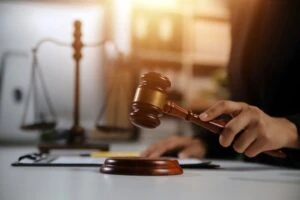
The consequences of a violation of the Brady Rule could include dismissing the charges, overturning the defendant’s conviction, and granting a new trial, among other possibilities. These are three of many possible outcomes caused by violating this rule.
Other Brady violation consequences could entail losing public trust, filing civil lawsuits against prosecutors, and sanctioning those responsible for the violations. If you’re facing a DUI charge, a Los Angeles DUI lawyer can keep an eye out for potential Brady violations in your case while also working to minimize any consequences you face as a result of your DUI.
What You Should Know About the Brady Rule
Before we consider the results of a violation of the Brady rule, it’s important to establish the purpose of this legal code. The Brady rule was established in the Brady v. Maryland court case.
Heard in the Supreme Court, Brady v. Maryland dealt with due process and its function in our court system. According to the Supreme Court, the prosecution has a legal duty to hand over some types of evidence to the defense.
The Brady Rule requires the disclosure of exculpatory and impeachment information. In other words, prosecutors have to hand over evidence if these circumstances apply:
- Favorable to the defense
- Material to the case
Evidence is considered “material” if it is likely to affect the outcome of a case. For example, evidence that would have proved the defendant was not guilty would be considered material evidence. Under the Brady rule, prosecutors have a duty to turn this evidence over.
They also have to turn over evidence that would otherwise damage their case against the defendant, not suppress it or conceal it.
What Are the Potential Outcomes of a Brady Rule Violation in California?
Brady rule violations can have a serious impact on criminal cases here in Los Angeles. Note that, in many cases, these violations are not discovered until after a trial is over. A lawyer can step in to file a Brady dispute even after an individual has been convicted.
In turn, a Brady rule violation can cause the court to set aside a conviction. However, you should know that this is not a guaranteed outcome. The court can still decide to uphold a conviction in certain cases, depending on the specifics of the circumstances.
If there’s enough additional evidence—outside of what was withheld—to result in a conviction, the court could decide to keep the conviction in place. However, the prosecution for the case could still face legal penalties because knowingly withholding material evidence is taken very seriously.
Evidence Associated With the Brady Rule in California
It’s important to understand what is required under Brady. Legally, the prosecution must turn over any evidence that demonstrates the defendant’s innocence. In the state of California, there are many possible kinds of evidence.
For instance, the prosecution may turn over the following pieces of evidence:
- Witness statements
- Blood test results
- Recordings
- Fingerprint tests
When it comes to DUI cases, blood test results are often pertinent if an individual is accused of driving under the influence. California measures a driver’s blood alcohol content (BAC) in many DUI cases. So, let’s say that a driver’s blood test came back with a low BAC.
However, let’s also say the prosecution failed to share the blood test results with the defense team. This could be considered a violation of the Brady rule.
Also, the prosecution is not required to note that they are sharing evidence showcasing a defendant’s innocence. They must only provide the evidence. It is up to a lawyer to apply the evidence properly.
Brady Hearings for Legal Cases in California
We mentioned earlier that many Brady violations are only discovered after a trial. However, this is not always the case. A defense lawyer can suspect that the prosecution is holding back evidence.
In this situation, they could request a Brady hearing. A Brady hearing can occur while a criminal case is ongoing. A judge will work to determine if the prosecution withheld evidence at this hearing.
In some cases, judges will declare a mistrial if they discover the prosecution violating the Brady rule. Some judges will even dismiss charges in this case. As your lawyer, we can look into how to use a “Brady motion” to dismiss your DUI.
Ask a Los Angeles DUI Lawyer About the Consequences of Violating the Brady Rule
The consequences of a violation of the Brady rule may result in the prosecutors who broke the rules facing legal repercussions. The court can also decide to overturn a conviction based on the violation.
For more information about how a violation of the Brady rule could apply to your case, contact Los Angeles DUI Lawyer for a referral to an attorney who will provide you with a no-obligation consultation. They will discuss your situation and explore your circumstances at no cost to you.






